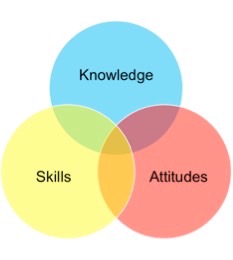Sign up for FlowVella
Sign up with FacebookAlready have an account? Sign in now
By registering you are agreeing to our
Terms of Service
Loading Flow

Attitudes
Attitudes are indeed an important element of dealing with cultural differences; the other knows for instance whether you are open to differences or not. However, attitudes are also hard to learn or to change.
Only a few attitudes are mentioned here, just as a demonstration. A necessary attitude is to show respect and an open mind. Do not judge immediately, do not say that the other is acting weird, but say ‘different’, accept that behaviour and try to understand where it is coming from. The ‘strange’ behaviour of the other may also be the result of personality; not all differences are cultural! Respect also implies a dialogue, aimed at co-operation. However, stating the need for respect is easier said than done. Emotional rejection may take over!
Being able to see the position of the other (empathy) and a willingness to accept what happens are also important attitudes. Acceptance does not imply that you approve of the practice in question, only that you acknowledge that you cannot change things.
Politeness is one the necessary skills in dealing with cultural differences but it is not sufficient in itself. A simple focus on politeness may block may block progress, just like diplomacy needs to be complemented with honesty.
In dealing with cultural differences one has to recognise the other as an individual, not the other as an average. Try to get acquainted at that level and to leave the wider frameworks behind; the focus is on the effort doing so. Also try to avoid as many prejudices and stereotypes as you can.
Finally, the willingness to adapt should be mentioned. Some aspects of adaptation are easy, like learning gestures. Other aspects are much harder and whether you are willing to adapt, depends on your own limits. Are you willing to eat ‘strange’ food (shape, colour, smell et cetera)? Are you as a Dutch businessman willing to wear a jellaba in an Arabic country? Yes for some, no for others, full of tension for many. Indeed, facing other cultures is an effective way of learning about oneself!
